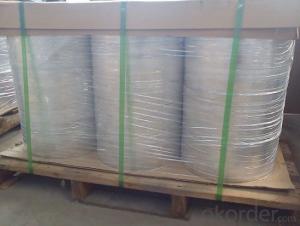Aluminum wire, a versatile material, has found its place in various applications, but its use in marine environments is particularly fascinating. The ocean, with its saltwater, humidity, and corrosive elements, poses a unique set of challenges for materials used in its vicinity. However, aluminum wire has proven to be a resilient choice, and in this article, we’ll explore its durability in marine applications, the factors that contribute to its longevity, and the reasons why it’s favored by many in the industry.
Why Aluminum Wire?
Aluminum wire is chosen for marine applications due to several reasons. First and foremost, it’s lightweight, which is a significant advantage in environments where buoyancy and weight distribution are critical. Its high electrical conductivity is another reason; it’s second only to copper but is much lighter, making it an ideal material for electrical wiring in boats and marine structures. Moreover, aluminum’s corrosion resistance is a key factor in its marine durability. The protective oxide layer that forms on its surface when exposed to air or water helps prevent further corrosion, a property that’s invaluable in the harsh marine environment.
The Protective Oxide Layer
The formation of a protective oxide layer is a natural process that occurs when aluminum is exposed to oxygen. This layer is dense and prevents the underlying aluminum from corroding. In marine applications, this self-healing property is crucial because it allows the wire to maintain its integrity even when subjected to the corrosive effects of saltwater and humidity. The oxide layer is not only protective but also enhances the wire’s resistance to wear and tear, making it suitable for long-term use in marine conditions.
Marine Challenges and Aluminum’s Response
Marine environments are tough on materials. The saltwater, with its high concentration of electrolytes, can accelerate the corrosion process of many metals. However, aluminum wire’s corrosion resistance is not its only defense. The wire can also withstand the mechanical stress caused by waves, tides, and other physical forces. Its flexibility allows it to bend without breaking, which is essential in environments where equipment is subjected to constant movement and vibration.
Applications in Marine Settings
Aluminum wire is used in a wide range of marine applications, from electrical wiring in boats and ships to more specialized uses such as in navigation systems and communication equipment. Its lightweight and high-strength properties make it perfect for applications where weight and durability are critical, such as in the rigging of sailboats or the construction of offshore platforms. Furthermore, its resistance to corrosion makes it a popular choice for underwater applications, such as in the wiring of submersible vehicles and marine research equipment.
Maintenance and Care
Despite its inherent durability, aluminum wire still requires proper maintenance to ensure its longevity in marine applications. Regular inspections for signs of wear, corrosion, or damage are essential. While the protective oxide layer is robust, it’s not infallible, and certain conditions may compromise its effectiveness. Proper cleaning and application of marine-grade protective coatings can further enhance the wire’s resistance to the elements.
The Future of Aluminum Wire in Marine Applications
As technology advances and the demand for lightweight, durable materials grows, the role of aluminum wire in marine applications is likely to expand. Innovations in material science and engineering are continually improving the properties of aluminum wire, making it even more suitable for the demanding marine environment. From enhanced conductivity to improved resistance to corrosion, the future looks bright for aluminum wire in the marine industry.
Conclusion
Aluminum wire’s durability in marine applications is a testament to its unique properties and the ingenuity of engineers who have harnessed its potential. Its lightweight, corrosion resistance, and flexibility make it an ideal material for a variety of marine uses. With proper care and maintenance, aluminum wire can serve reliably for many years, proving its worth in the challenging marine environment. As we look to the future, the continued development and application of aluminum wire in marine settings are sure to bring about exciting advancements and improvements.

